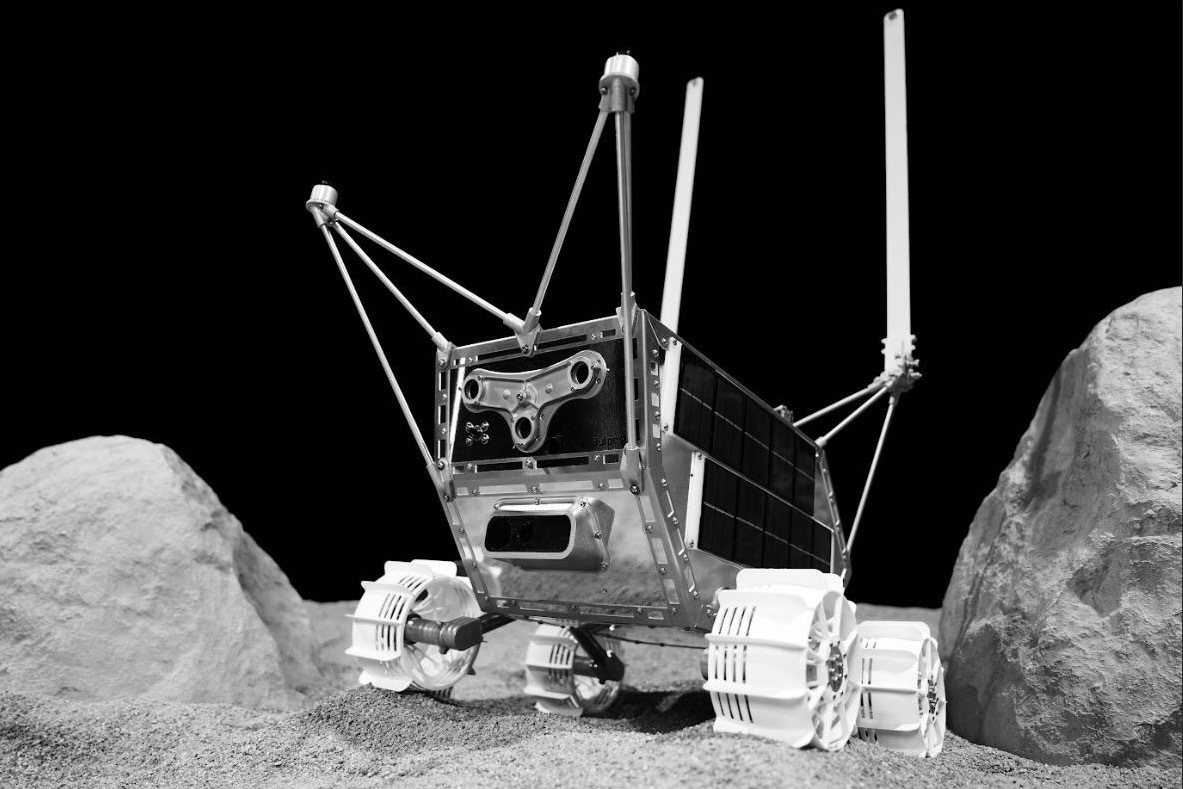
Hurtling towards the moon right now, safely stored in a garage held against the side of a lunar lander, is a suitcase-sized robotic rover from Colorado. And it's on course to make history, heralding the beginning of a commercial industry extracting mineral wealth from space.
On Wednesday, Lunar Outpost’s Mobile Autonomous Prospecting Platform (or MAPP) rover launched aboard a SpaceX Falcon 9 rocket from NASA’s Kennedy Space Center in Florida. The little rover was not the only important payload on the rocket; it wasn’t even the only one built in Colorado. The rocket also carried Lockheed Martin’s Lunar Trailblazer satellite up into space.
But, for the scrappy Golden and Arvada-based startup, the successful launch of their rover marks a major milestone years in the making.
“Not only just building the product, but also building the company at the same time has made it kind of a really momentous occasion,” said Lunar Outpost co-founder and Chief Strategy Officer Forrest Meyen. “Now, the hard work is still ahead, so it's not a complete relief.”
The Texas-built Intuitive Machines Athena Lander is expected to touch down on the lunar surface on Thursday. A mechanical arm will then lower the garage containing the MAPP rover to the ground. Just by making it off the lander, it will have already ticked off a series of firsts.
Perhaps surprisingly, the U.S. has never sent a robotic rover to the moon before; the famous LRV moon buggy used during the Apollo program was controlled by astronauts sitting within the vehicle. The MAPP will also be the first rover at the Lunar South Pole and the first purely commercial rover to ever land on another planetary body.
Once it begins roving the lunar surface, the MAPP will perform tasks for a number of major contractors. It will test the range and strength of a first-of-its-kind Lunar cellular network from Nokia. Also, a tiny additional rover from MIT called the AstroAnt will roll around on top of the MAPP with magnetic wheels, measuring the temperature of the MAPP’s radiator.
Its most symbolic and arguably most historically important mission may at first also seem its most unassuming. In 2020, NASA issued Lunar Outpost a check for $1 to collect a small amount of lunar regolith (moon dust) with the MAPP rover. When the rover collects that regolith, it will complete the contract for the first commercial sale of space resources in human history.
Meyen told CPR News the sale of the regolith will establish the legal and procedural framework for private companies selling minerals and other resources gathered in the vastness of space. He compared it to initial mining claims from the American frontier.
“We really do see the moon as a new world,” Meyen said. “It's effectively the Earth's eighth continent, and this is going to be the moment that opens up the start of the new lunar economy.”
Lunar Outpost has more projects underway for that eighth continent. Last year, NASA selected the company as the primary contractor to build the next-generation lunar rover future Artemis astronauts would drive.









